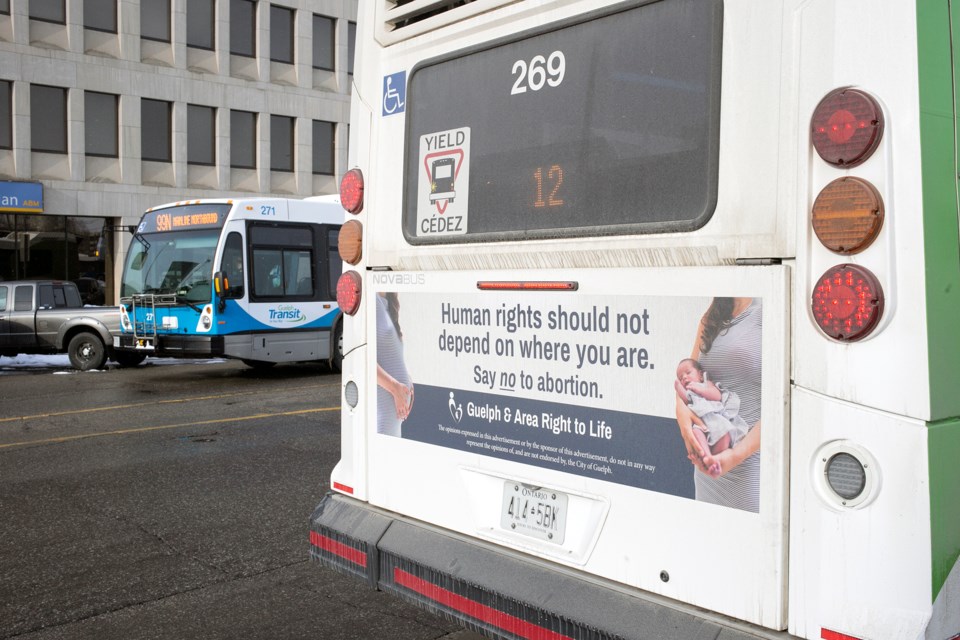A judicial review is in the final stage of deciding whether the City of Guelph acted improperly when it removed three anti-abortion advertisements from city buses.
The three-judge panel heard final arguments from the city and the applicant, Guelph and Area Right to Life, during a virtual hearing on Tuesday.
At issue was whether the city acted improperly when it made the decision to remove three anti-abortion advertisements from its buses, the first in December of 2019 and the other two pulled in March of 2020.
Guelph and Area Right to Life, has been advertising on city buses for over 20 years but complaints from the public led to the city to forward the ad content to the Ad Standards Council (ASC), a third-party non-profit agency.
Bus ads in Guelph are sold and managed by a third-party agency called Street Seen Media.
In 2016 the City of Guelph adopted a new ad standards policy which offered the public a process to complain about ads through ASC.
By relying on a third party to decide whether an ad was misleading or offensive, the city abdicated its own responsibility to uphold the client's rights under the Charter of Rights and Freedoms, was one of the arguments made by Carol Crosson, a constitutional lawyer representing Right to Life.
“This case is about freedom of expression. It’s not a case about abortion — it’s about the Charter right to share one’s opinion, one’s thoughts, one’s beliefs on abortion and indeed on any subject in Canada,” said Crosson.
Right to Life chose not to engage in the process with ASC because ASC is not a government agency and Right to Life does not recognize the council's authority in the matter, said Crosson.
If the ads were offensive or misleading why did the city agree to run them in the first place, asked Crosson.
Alison Thornton, counsel for the city, said Right to Life agreed to the complaints process through ASC when it signed the ad standards policy.
"If a party is substantively offside, the city is justified in restricting that advertising. The Charter has been considered in setting that standard and our submission is that something that is disparaging and misleading is offside,” said Thornton.
She said advertising that is found to be misleading is not something that the city should be forced to continue displaying.
“If the city is not allowed to insist that advertising is not misleading and that advertising is not unfairly disparaging, then we are in a situation — what about those other subject matters?" said Thornton. "What about vaccines in the time of COVID? Does the city have to accept an anti-vaccine position from an advertiser who pays their agent because we are the city and we are not allowed to insist on truth? That can’t be the case."
The city's policy was created after a 2014 decision by city council. Thornton said it was put in place to eliminate what she called 'ad-hoc' decision making.
Thornton said if Right to Life had engaged with ASC there is a possibility the decision could have been overturned.
"The applicant’s choice not to comply with ASC was done with eyes wide open," said Thornton.
After the three advertisements were removed, Right to Life substituted them with a new ad titled 'isn't abortion something we should talk about?' which has not been removed.
Crosson said the wording of that new ad was selected, in part, because of the removal of the three ads.
With final arguments made the panel of three judges will provide a final decision in the near future.
